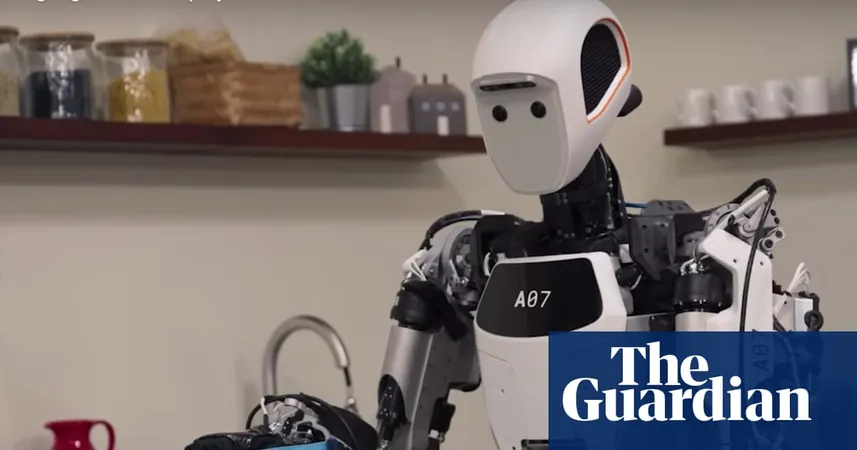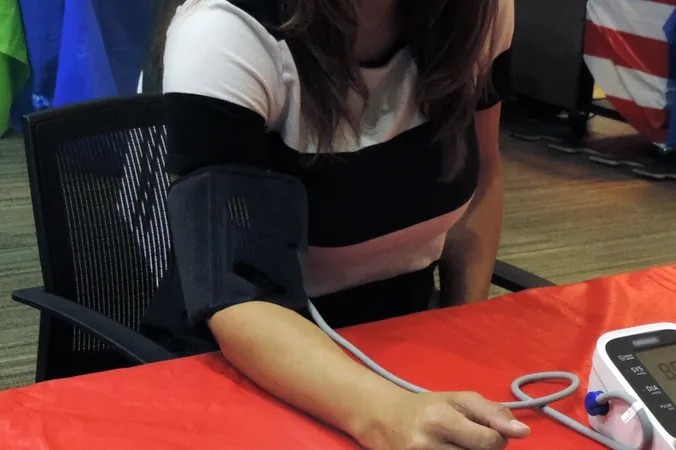
Google Unveils Groundbreaking ‘World Model’ to Train AI Robots in Virtual Environments!
2025-08-05
Author: Rajesh
In a bold leap towards the realm of artificial general intelligence (AGI), Google has announced its innovative Genie 3 ‘world model’, a sophisticated tool designed to simulate real-world environments and train AI systems like robots and autonomous vehicles.
With this state-of-the-art model, AI can interact within lifelike recreations of settings such as warehouses, marking a significant milestone in how machines learn to navigate and understand their surroundings.
Google DeepMind, the tech giant's AI division, asserts that world models are pivotal in the quest for AGI—a theoretical stage where AI can perform diverse tasks at a human level, beyond mere specialized functions like playing chess or translating languages.
According to DeepMind, the implementation of such models is expected to greatly enhance the development of autonomous AI agents, which could take on more roles in everyday tasks.
While the Genie 3 model looks promising, Google has clarified that it is not yet ready for public use, citing various limitations and no set release date.
This announcement arrives amid fierce competition in the AI arena, especially as other tech leaders, such as OpenAI’s CEO Sam Altman, publicly tease their own advancements, including the anticipated GPT-5.
Beyond training robots, Google envisions its world model allowing humans to engage in a variety of virtual simulations for training or exploration—imagine skiing down a slope or hiking around a serene mountain lake, all generated in an instant from simple text prompts!
The demonstrations unveiled to journalists showcased Genie 3’s ability to create these scenarios dynamically, rapidly altering environments based on user inputs. The simulations reportedly enjoyed a duration that outstrips Google’s previous video model, Veo 3, which has an eight-second limit.
As discussions surrounding AGI often focus on its potential to disrupt white-collar jobs, Google sees world models as essential for advancing robotic and autonomous vehicle technology.
For example, an accurately simulated warehouse could be the perfect training ground for robots, enabling them to learn and adapt in scenarios they might face in reality.
Highlighting the significance of world models, Prof. Subramanian Ramamoorthy from the University of Edinburgh emphasizes their importance for robot development. He states, 'To achieve flexible decision-making, robots must anticipate the outcomes of various actions to select the most effective one when interacting with the physical world.'
In addition, Andrew Rogoyski from the University of Surrey notes that world models could also enhance the capabilities of large language models, such as those powering popular chatbots like ChatGPT.
He argues, 'Giving an AI a virtual embodiment allows it to physically explore a world, adding a crucial dimension to the ongoing quest for more advanced and intelligent AI systems.'
Last year, Google researchers highlighted the importance of world models, explaining that while large language models excel in planning, they often fall short in executing actions on a person’s behalf.


 Brasil (PT)
Brasil (PT)
 Canada (EN)
Canada (EN)
 Chile (ES)
Chile (ES)
 Česko (CS)
Česko (CS)
 대한민국 (KO)
대한민국 (KO)
 España (ES)
España (ES)
 France (FR)
France (FR)
 Hong Kong (EN)
Hong Kong (EN)
 Italia (IT)
Italia (IT)
 日本 (JA)
日本 (JA)
 Magyarország (HU)
Magyarország (HU)
 Norge (NO)
Norge (NO)
 Polska (PL)
Polska (PL)
 Schweiz (DE)
Schweiz (DE)
 Singapore (EN)
Singapore (EN)
 Sverige (SV)
Sverige (SV)
 Suomi (FI)
Suomi (FI)
 Türkiye (TR)
Türkiye (TR)
 الإمارات العربية المتحدة (AR)
الإمارات العربية المتحدة (AR)